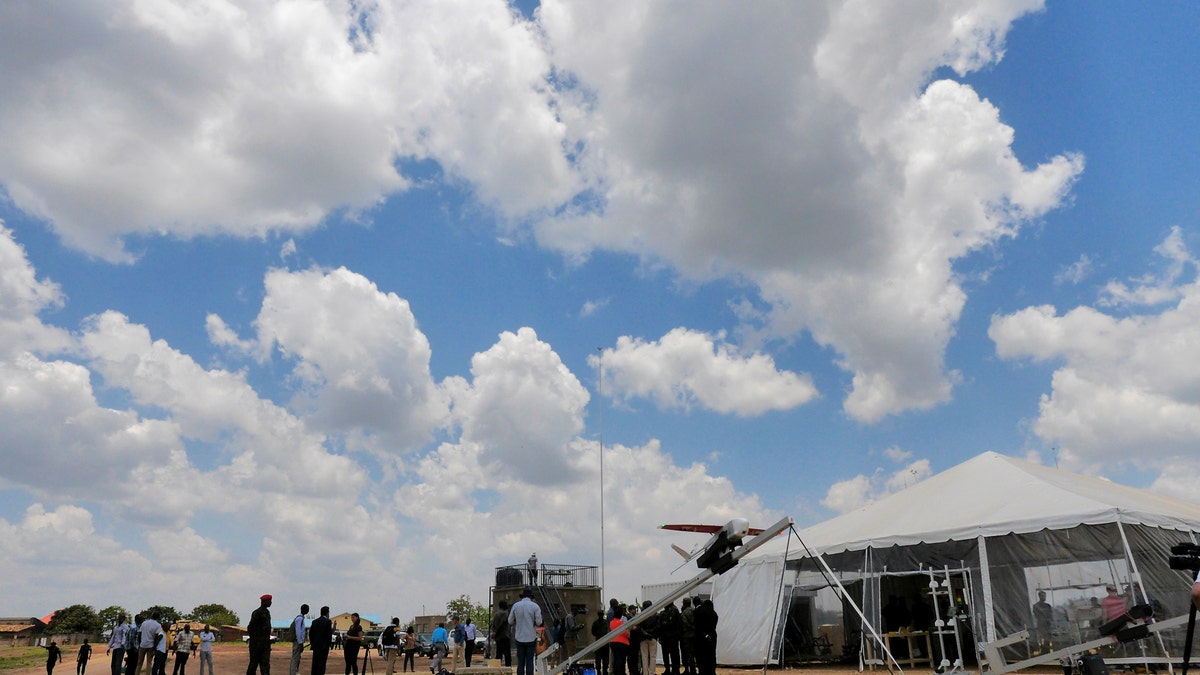
Rwanda's government officials inspect the drone site before launch at drone operations center in Muhang, south of Rwanda's capital, where Zipline delivered their first blood to patients using a drone on Oct. 12, 2016. (REUTERS/James Akena)
Drones have been used to deliver a great number of things, from packages to pizzas to beer. But one company is using drones to deliver blood, and deliver it fast, saving many lives in Africa.
Zipline, a Silicon Valley company, has teamed up with Rwanda's health ministry to deliver more than 5,500 units of blood, according to a report in The Guardian.
The drones have reportedly cut the delivery time from four hours on average, to roughly half an hour.
The company, which has raised over $41 million from investors according to Crunchbase, delivers blood to 12 hospitals in the eastern part of the country, covering a total of approximately 6 million people.
AFTER HUMANS FAIL, DRONE TRACKS DOWN LOST 92-YEAR OLD IN 20 MINUTES
As of 2016, Rwanda had a population of roughly 11.9 million, according to data from Worldometers.
The drones are able to fly to the various clinics at speeds of up to 60 mph and when they are within a minute of the destination, the doctors receive a text. The drone then drops off the package, which is attached to a parachute, and then returns to its home base.
Drone delivery is important in the country, as it not only helps improve the speed of blood delivery, but the efficiency as well, important for a country where diseases such as malaria are still prevalent.
Malaria, a mosquito-borne disease, can cause a number of related symptoms, including anaemia, heightening the need for blood transplants and infusions.
LOS ANGELES FIRE DEPT. DISPATCHES DRONES FOR THE FIRST TIME IN WILDFIRE FIGHT
Drone delivery also means hospitals can store less blood, which means less waste as blood spoils quickly.
In an interview with The Guardian, Zipline's CEO Keller Rinaudo said having drones in Rwanda will give the area a leg up over other parts of the world when it comes to drone delivery.
“Some of the biggest, most powerful technology companies in the world are still trying to figure out how to do this," Rinaudo said. "But east Africa is showing them all the way. The work in Rwanda has shown the world what’s possible when you make a national commitment to expand health care access with drones and help save lives.”




















